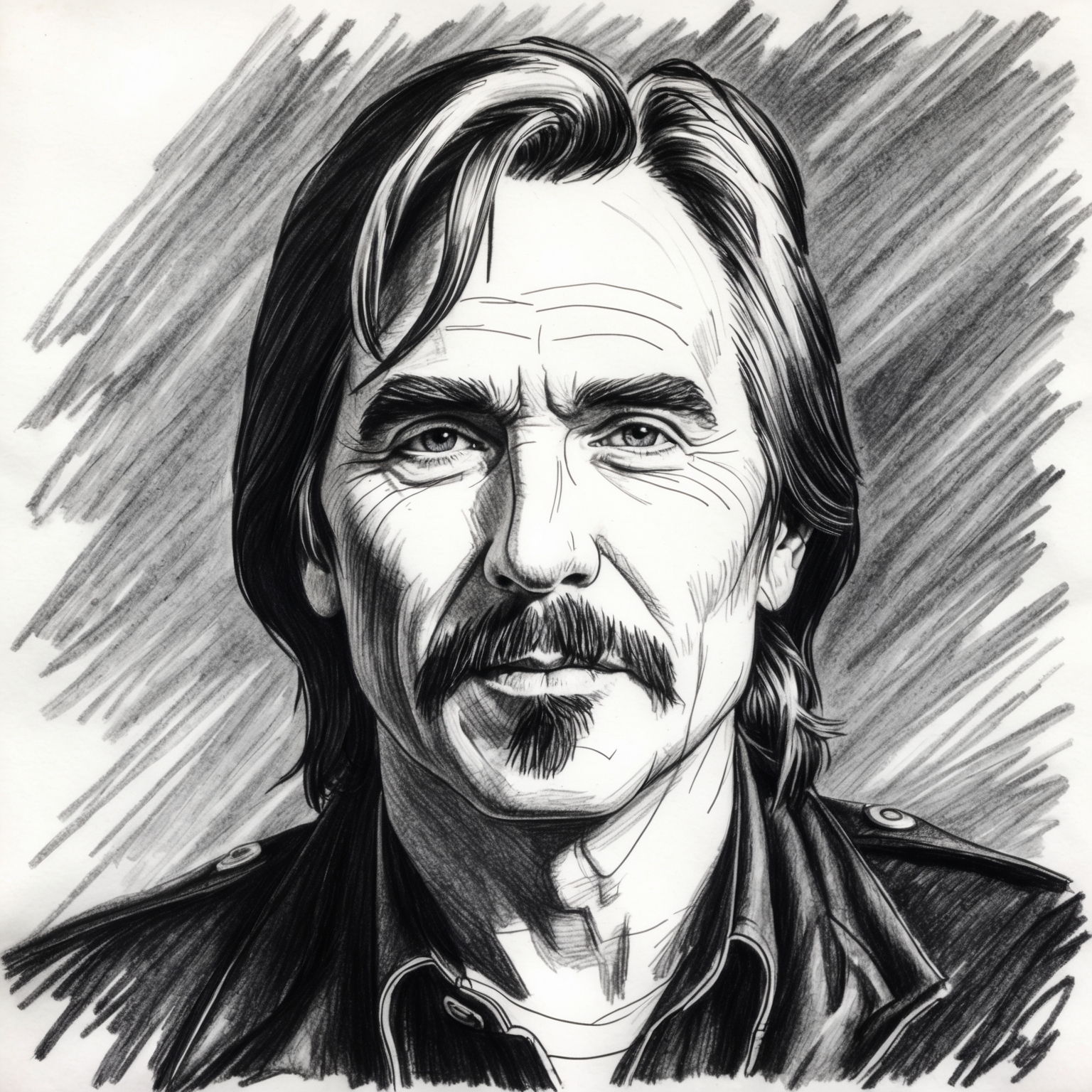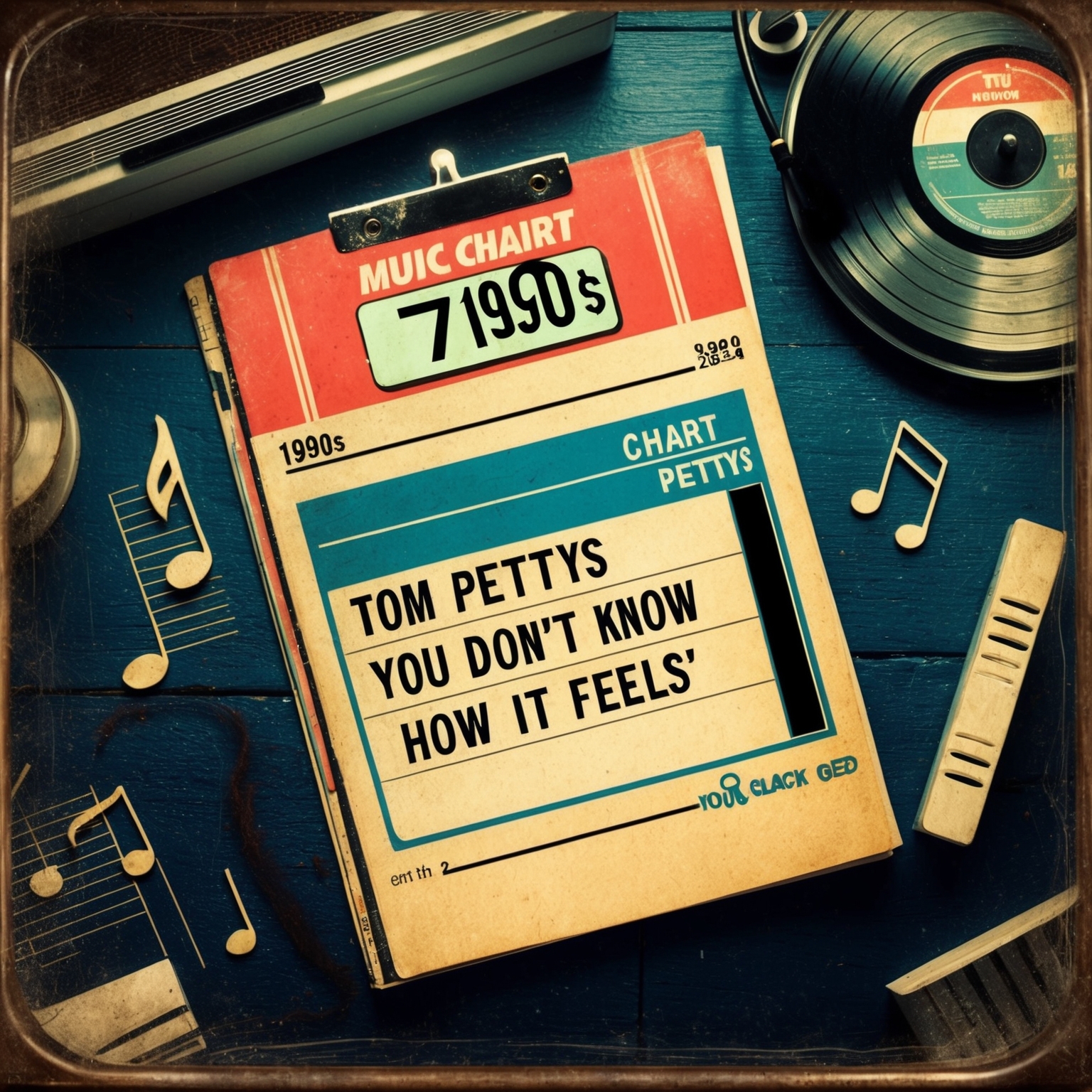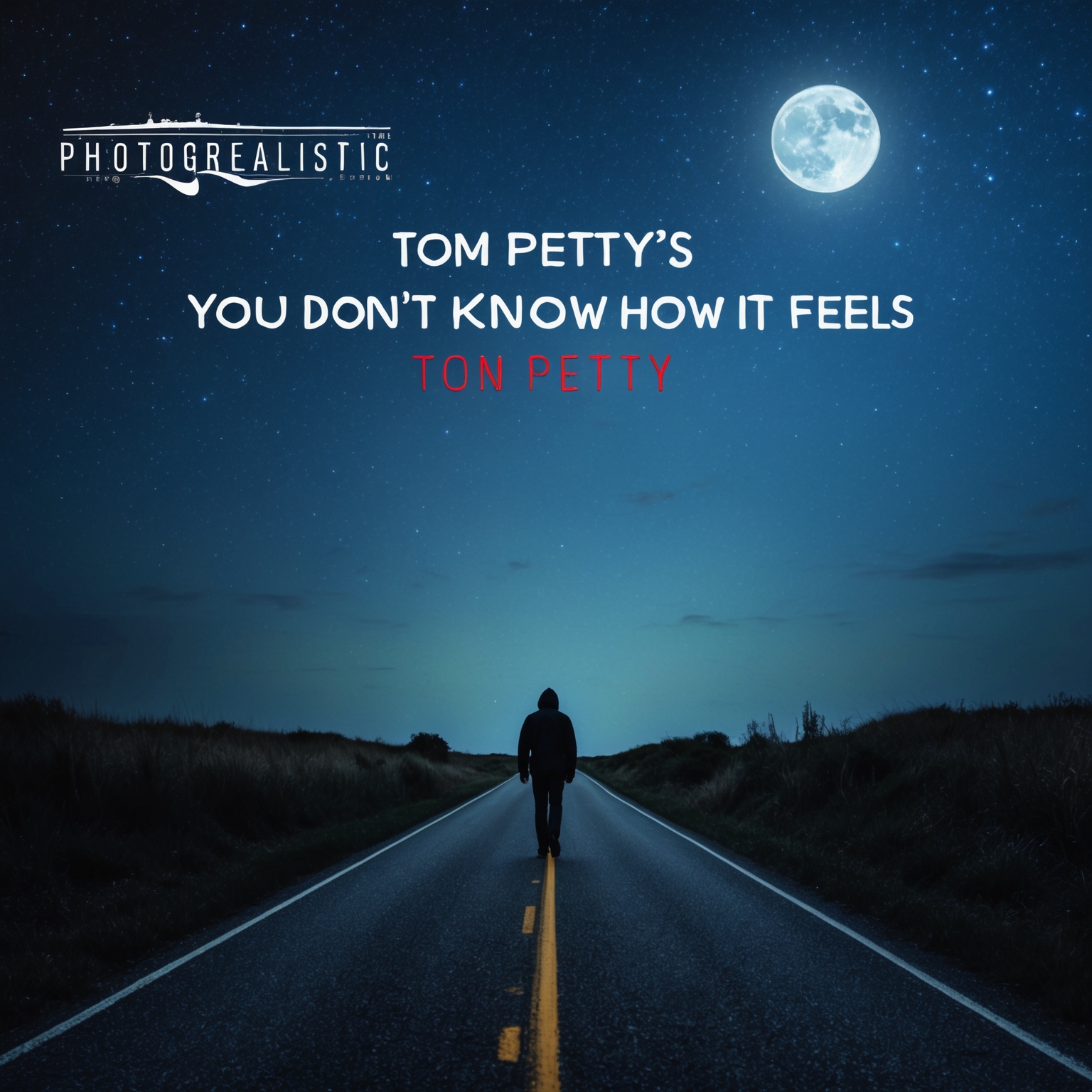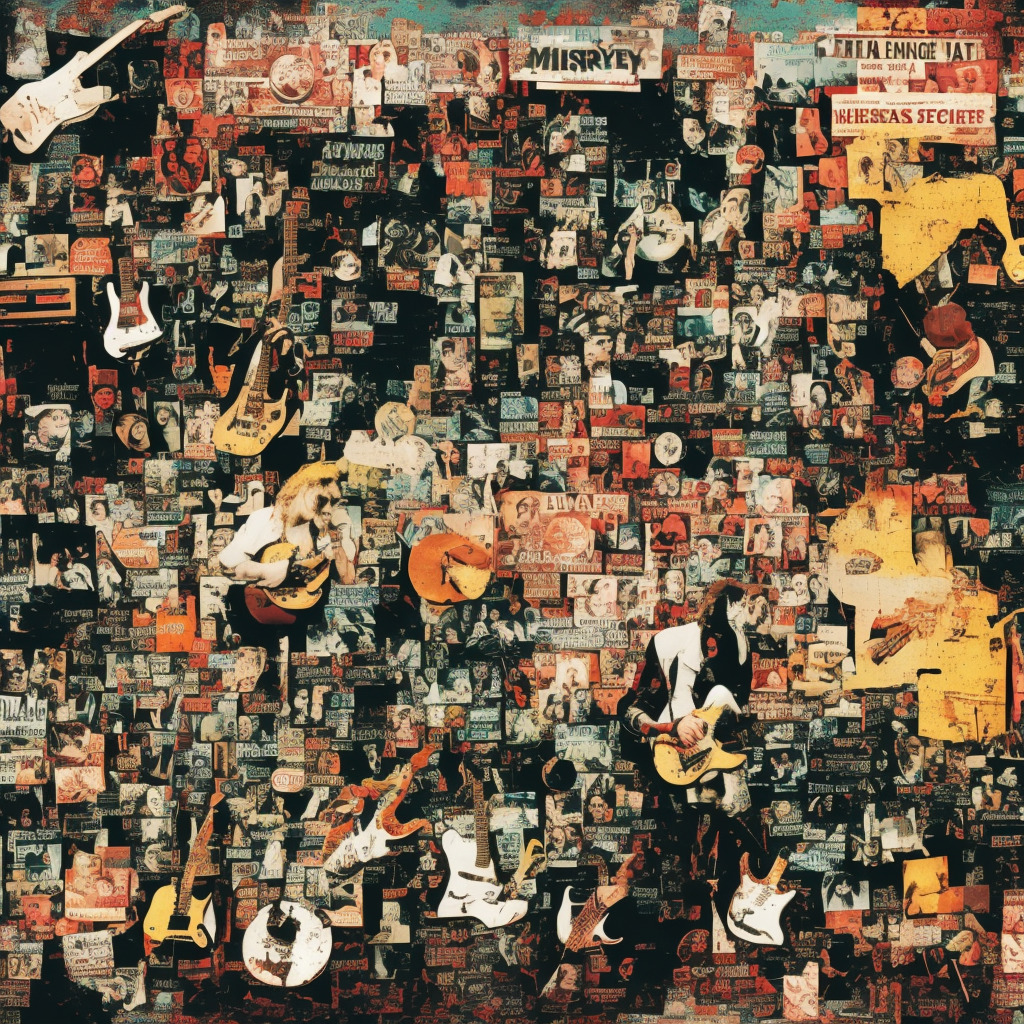Tom Petty | You Don’t Know How It Feels
Exploring the Legacy of Tom Petty
Discover the journey of Tom Petty, from Gainesville to rock legend, through the lens of his hit song “You Don’t Know How It Feels.”

Tom Petty, an indelible icon in rock music, stands as one of the most influential figures of his generation. “You Don’t Know How It Feels” is a song that shines brightly in his catalog, a testament to his enduring appeal and musical mastery. Released during the mid-1990s, this track captures the essence of Petty’s reflective yet rebellious spirit, merging introspective lyrics with a catchy melody.
Born in Gainesville, Florida, Tom Petty ventured into the music world with a fervent passion. Early on, he found inspiration in artists like The Beatles and Elvis Presley, which set him on a path to greatness. Forming the band Mudcrutch in the early 1970s, he later found widespread success with Tom Petty and the Heartbreakers. Their self-titled debut album in 1976 marked the beginning of a prolific career, peppered with a string of hits that would define the American rock landscape.
By the time “You Don’t Know How It Feels” hit the airwaves, Petty had already carved out an impressive niche for himself. This particular era of his career was notable for his collaborations with artists such as Jeff Lynne and Bob Dylan, which greatly influenced the song’s creation. The 1994 release came during a time when the music scene was undergoing significant transitions, and Petty’s ability to produce relatable, compelling music only further cemented his legendary status. The track resonated with listeners, reflecting the era’s introspective cultural mindset.
Tom Petty: The Composer Behind ‘You Don’t Know How It Feels’
Explore the musical genius of Tom Petty, the composer behind ‘You Don’t Know How It Feels.’ Discover his unique style, influences, and the pivotal role he played in crafting this timeless track.

Background and Career: Tom Petty, the mastermind behind ‘You Don’t Know How It Feels,’ was not just a talented singer and musician but also a prolific composer. Born in Gainesville, Florida, in 1950, Petty’s journey into music was inspired by legendary acts like Elvis Presley and The Beatles. His early involvement in bands such as Mudcrutch paved the way for his future success with Tom Petty and the Heartbreakers. Petty’s music career spanned over four decades, marked by numerous chart-topping hits and critically acclaimed albums that cemented his place in rock history.
Musical Style and Influences: Petty’s musical style is a unique blend of rock and roll, heartland rock, and Southern rock. His influences range from early rock icons to the folk-rock sounds of Bob Dylan and The Byrds. This eclectic mix of styles gave his compositions a distinctive edge, characterized by melodic guitar riffs, poignant lyrics, and authentic storytelling. Petty’s ability to blend heartfelt narratives with catchy melodies made his songs timeless and resonant across generations.
Role in the Song’s Creation: As the composer of ‘You Don’t Know How It Feels,’ Petty’s contribution was pivotal. The song, released on the album ‘Wildflowers’ in 1994, showcases his knack for crafting relatable themes with introspective lyrics. Petty’s use of simple yet effective chord progressions, combined with his distinct vocal delivery, creates an intimate listening experience. The song’s laid-back groove, accentuated by harmonica, reflects Petty’s adeptness in capturing the essence of life’s trials and reflections, enhancing its appeal and longevity.
Impact on the Song’s Success: Petty’s composition played a crucial role in the song’s success, contributing to its widespread appeal and radio play. ‘You Don’t Know How It Feels’ resonated with audiences, reaching the top of Billboard’s Album Rock Tracks chart. Petty’s authentic musical voice and engaging storytelling were key factors in the song’s ability to connect with listeners, solidifying its place as a classic in his repertoire.
Acknowledging Achievements and Artistic Interpretations
Explore how ‘You Don’t Know How It Feels’ stands out through nominations, covers, and appearances.

You Don’t Know How It Feels has been one of those iconic tracks that resonated not only with fans but also with critics. Released as the lead single from Tom Petty’s second solo studio album, ‘Wildflowers’ in 1994, the song quickly garnered significant attention. Despite not receiving a plethora of award nominations, it earned a Grammy nomination for Best Male Rock Vocal Performance in 1996, demonstrating its impact in the rock genre. Although it didn’t win, being recognized by the Recording Academy highlights its influence and Petty’s solid performance.
Apart from the awards, the song’s unique charm inspired multiple artists across genres to put their spin on it. One notable cover comes from country artist Blake Shelton, who brought a distinctive southern twist to the song, respecting its original essence while showcasing his own style. The enduring appeal of Tom Petty’s songwriting can be felt in these diverse renditions, speaking to the timelessness of his work.
Furthermore, the song has had a presence beyond the musical sphere, featuring in several movies and TV shows. Its nostalgic and reflective tone made it an apt choice for various soundtracks, enhancing emotional narratives with its unmissable harmonica intro and Petty’s evocative vocals. Such appearances have introduced the song to newer audiences, ensuring its legacy continues through varied cultural mediums.
Scaling the Charts: The Story of ‘You Don’t Know How It Feels’
Tom Petty’s ‘You Don’t Know How It Feels’ achieved significant chart success in the mid-’90s, peaking at number 13 on the Billboard Hot 100 and topping the Mainstream Rock Tracks chart. The song’s release came at a critical point in Petty’s career, bridging classic rock with contemporary sounds, and was bolstered by strategic marketing and a memorable music video. Its enduring appeal is reflected in its continued streaming success and fan engagement, solidifying its legacy in rock music history.

Released in October 1994, Tom Petty’s ‘You Don’t Know How It Feels’ quickly cemented itself as a staple of modern rock music. The track showcased Petty’s signature blend of laid-back rhythm and relatable lyrics. Upon its release, the song appeared on the Billboard Hot 100, debuting at a respectable position before climbing its way to the top 20, peaking at number 13. This success was mirrored on other charts, as it secured the number 1 spot on Billboard’s Mainstream Rock Tracks. In the alternative chart landscape of the mid-’90s, Petty managed to carve out a place for his more classic rock-centric style amidst the burgeoning grunge scene.
The song was a significant hit for Petty, particularly since it came from the highly anticipated solo album ‘Wildflowers’. It was an era where many classic rock artists were striving to maintain relevance amid an evolving music scene. The track’s success proved that Petty’s style had enduring appeal and could resonate with both his established fan base and a new generation of listeners. As a follow-up to his earlier successes with The Heartbreakers, ‘You Don’t Know How It Feels’ was integral in demonstrating Petty’s versatility as an artist, embodying a sound that was uniquely his.
Marketing and promotional strategies played a crucial role in the song’s success, with the label leveraging Tom Petty’s iconic status. The music video, featuring a beautifully crafted surrealist narrative that matched the song’s introspective nature, was put into heavy rotation on MTV and other music channels. Critical reception was overwhelmingly positive, with reviews highlighting the raw authenticity of Petty’s delivery. The song has since become a cultural touchstone, often lauded for its philosophical lyrics and timeless sound. Even today, it garners significant streaming numbers on platforms like Spotify and Apple Music, maintaining its place as a cherished part of Petty’s discography. Fans continue to engage with the track across social media platforms, sharing personal stories and creative interpretations, keeping the legacy of ‘You Don’t Know How It Feels’ alive and thriving.
Visual Storytelling: The Music Video for ‘You Don’t Know How It Feels’
Discover the captivating visuals and artistic storytelling of Tom Petty’s ‘You Don’t Know How It Feels’ through its iconic music video.

Tom Petty’s iconic track “You Don’t Know How It Feels” features a music video that is as captivating as the song itself. Released in 1994, the video became a quintessential piece of Petty’s visual artistry. Directed by Phil Joanou, a filmmaker renowned for his distinctive storytelling style, the video uses a combination of surreal imagery and everyday scenes to capture the song’s introspective and slightly rebellious undertone. The visuals delve deep into the song’s themes of escapism and reflection, employing a combination of dreamlike sequences and reality-based shots.
The music video plays a significant role in amplifying the song’s message, reaching a wider audience through its visual depiction. The clever interplay between the contemplative lyrics and the video’s artistic interpretation aids in enhancing the listener’s connection to the song. The video’s reception was overwhelmingly positive, with critics praising its ability to perfectly encapsulate the mood and spirit of the track. The innovative use of spinning cameras and moving close-ups gave it a unique edge, setting it apart from other music videos of the era.
A notable aspect of the video is the absence of celebrity cameos, allowing the focus to remain solely on Petty’s performance and the song’s narrative. The production team included top-tier professionals who ensured that the video’s quality matched the eminence of the song. The seamless integration of aloofness and intimacy in the video demonstrates the profoundness of the song’s lyrics and Petty’s prowess in connecting with his audience through more than just sound.
An Intricate Tapestry of Sound and Emotion
“You Don’t Know How It Feels” by Tom Petty features a rich tapestry of folk, rock, and blues influences, showcasing his musical evolution with contemplative melodies and harmonica-driven instrumentation.

The song “You Don’t Know How It Feels” by Tom Petty is a masterful composition that showcases his signature blend of rock, folk, and blues influences. The song is primarily written in the key of F major, characterized by its mellow and contemplative feel. The chord progression is structured around the use of simple yet effective chords such as F, Bb, and C, which contribute to its accessible and relatable sound. The tempo of the track is moderate, allowing the listener to fully immerse themselves in the introspective lyricism and resonant instrumentation.
Melodically, Petty employs a blend of catchy and reflective motifs, with a focus on a downward melodic line that creates a sense of yearning and contemplation. Harmony comes into play with the use of backing vocals that add depth and texture to the main melody, enhancing the emotive quality of the song. Rhythmically, “You Don’t Know How It Feels” maintains a steady, laid-back groove, driven primarily by a simple drum pattern, which complements the song’s overall laid-back and introspective vibe.
Instrumentation is a crucial element that gives this track its unique sound. The song prominently features harmonica segments, reminiscent of classic rock and American folk music. Alongside the harmonica, electric guitars, bass, and keyboard instruments blend seamlessly to create a rich, textured soundscape. Compared to Tom Petty’s earlier and later works, such as “American Girl” or “Free Fallin’,” this track represents a mature exploration of themes like personal reflection and existential pondering. This is indicative of Petty’s evolution as an artist, demonstrating a move towards more personal and introspective material. An interesting fact about the song’s recording is that it was produced by Rick Rubin, a legendary figure known for his minimalist production style, which allowed Petty’s storytelling to shine through the sound.
In the broader context of Petty’s discography, “You Don’t Know How It Feels” marks an important period during the early 1990s when he was actively exploring more profound and personal subject matter, both musically and lyrically. This song stands as a testament to his ability to blend introspective themes with catchy, accessible rock arrangements, maintaining his relevance and appeal across different generations of fans.
Exploring the Depths of ‘You Don’t Know How It Feels’
Tom Petty’s ‘You Don’t Know How It Feels’ unfolds a narrative steeped in loneliness and longing for connection. The song’s raw honesty and simple language convey a profound emotional impact. Invoking literary devices and cultural references, Petty crafts a relatable tale that resonates deeply with listeners across generations.
I’ll take you on a moonlight rideThere’s someone I used to see
But she don’t give a damn for me
But let me get to the point
Let’s roll another joint
And turn the radio loud
I’m too alone to be proud
And you don’t know how it feels
You don’t know how it feels
To be me
People come, people go
Some grow young, some grow cold
…
******* This Lyrics is NOT for Commercial use *******
 The lyrics of Tom Petty’s ‘You Don’t Know How It Feels’ are imbued with a raw, introspective honesty that has captured the hearts of listeners since its release. The main theme revolves around loneliness and the longing for connection, feelings that are almost universally relatable. Petty’s narrative unfolds in the first person, inviting listeners to experience his world—the cravings, the solitude, and the quest for liberation. This perspective is crucial as it adds an intimate layer that resonates with his audience, allowing them to glimpse the personal struggles behind his otherwise laid-back rock persona.
The lyrics of Tom Petty’s ‘You Don’t Know How It Feels’ are imbued with a raw, introspective honesty that has captured the hearts of listeners since its release. The main theme revolves around loneliness and the longing for connection, feelings that are almost universally relatable. Petty’s narrative unfolds in the first person, inviting listeners to experience his world—the cravings, the solitude, and the quest for liberation. This perspective is crucial as it adds an intimate layer that resonates with his audience, allowing them to glimpse the personal struggles behind his otherwise laid-back rock persona.
In the song, Petty employs a variety of literary devices to enhance the storytelling quality of his lyrics. Metaphors abound, such as in lines like ‘Let me run with you tonight / I’ll take you on a moonlight ride,’ suggesting a desire to escape with someone who understands his plight. This escapism is contrasted with more literal expressions of his current isolation and yearning, like ‘Let’s roll another joint,’ depicting a simple, yet profound coping mechanism. The use of simple language and straightforward imagery intensifies the sense of authenticity, pulling listeners into the narrative without pretense.
Culturally, the song reflects the mid-90s era—a period marked by shifts in musical tastes and heightened self-awareness among artists and audiences alike. The line ‘Let’s roll another joint’ sparked both admiration and controversy, illustrating the song’s raw edge and connection to an evolving cultural landscape that often celebrated rebellion and introspection. This cultural resonance likely contributed to its widespread appeal and enduring legacy, anchoring the song as a reflective piece on self-identity and the complexities of personal experience amid societal changes.
Did you know? Tom Petty’s You Don’t Know How It Feels was banned by some radio stations for its cheeky roll another joint lyric! 🚬🎸 #RockTrivia #TomPetty #FunFact tinyurl.com/2f45vxp8
Click to Tweet







